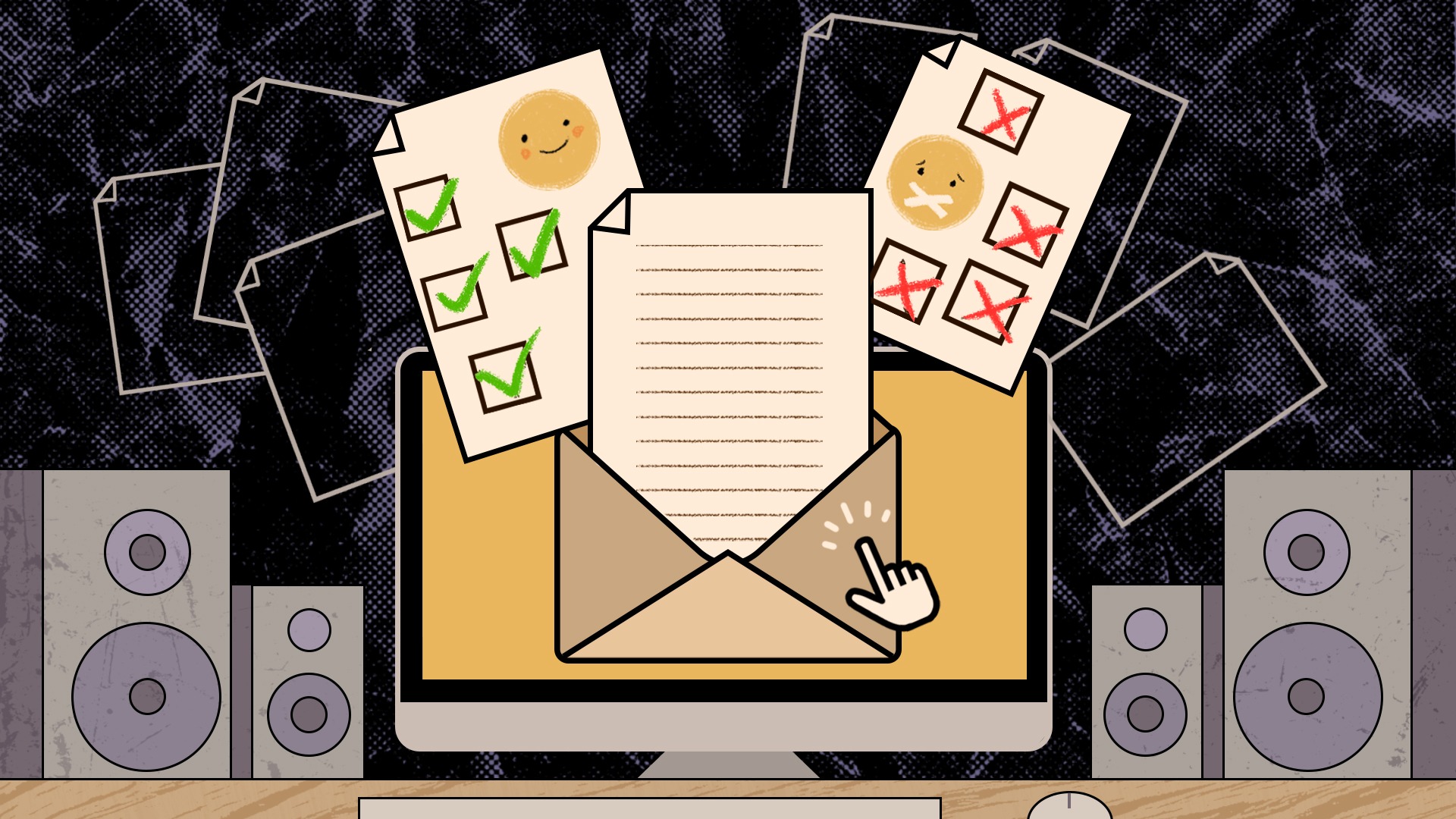Despite email being one of our primary methods of communication in business, people often overlook the importance of proper email etiquette. When emailing someone that you know very well, it’s reasonable to write informally. When sending what is known as a “cold email” – one that is unsolicited or sent to a recipient you haven’t contacted before – your email manners and presentation say a great deal about your professionalism, and have a significant impact on whether you’ll actually get a response, regardless of whether you’re looking for work, pitching to the press, or just looking for an opportunity to connect.
The details of how to write a strong email may seem obvious, but it’s the same as any other first impression. The recipient is a stranger; they don’t know you or anything about you. You have a very limited opportunity to make an impression and convince them that this email is worth their time. This is especially true when you’re writing to people in the field who are already bombarded by unsolicited emails – bloggers, music supervisors, agents, or really anyone in an important position who has the ability to hire for a job.
With that in mind, we have created a list of do’s and don’ts to help you craft a compelling, effective email in order to optimize your chances of getting a reply.
DO:
- Know who you’re emailing, and use their name when you open.
- Make sure it’s spelt correctly! Otherwise, it comes across a bit careless.
- Introduce yourself in a clear and concise way:
- Include your name, where you’re from (if relevant), what you do/your skills.
- 1-2 short sentences will do.
E.g.: My name is [name], I’m a [title/skill] at [company/school] based in [city, country].
- Explain briefly how you know of or have heard of them, and compliment their work:
- Some examples of how to do this:
- If you follow them online, this shows your interest in what they do.
- If you have a mutual friend, this instantly builds credibility and trust.
- If you heard of them elsewhere, explain how that connects the two of you.
- Compliment them or their work with a specific reference (e.g.: Your panel at X conference was so informative; your production style is very unique; your latest video really hit home for me).
- 1-2 short sentences will do.
- Some examples of how to do this:
E.g.: I’ve been following you online for quite a while now and have also attended several of your webinars. I really loved your latest panel on the future of live music, it was so interesting to hear everyone’s take on what’s to come.
- Explain why you’re reaching out to them:
- If this is regarding a job, phrase it in a way that makes it about them, not you.
- If this is a pitch, explain how you’d like to work with them and (briefly) why’d you be a good fit.
- Hyperlink your work! Direct them to your portfolio, website, etc., so they can learn more about you if they want to.
E.g.: I saw your job posting for [specific title] online and would love to learn more about what you’re looking for. I have a background in [area of expertise] with experience in [name any relevant skills that apply to this particular job] and think it could be a great fit.
You can check out my latest work here [hyperlink to your portfolio or website].
- Thank them for their time and prompt them with a call to action (politely, of course) if applicable:
- Call to action: suggest a quick phone call, a chat over coffee, etc.
- If they’re a very busy person, offer something that’s more convenient for them, e.g: meet them after their next event.
- Alternatively, you can leave it open-ended.
- Be very careful here: you don’t want to put any pressure or come across as if you expect anything from them. You simply want to politely suggest an opportunity to connect further.
E.g.: Thank you for your consideration. I’d be happy to jump on a quick call if you’d like to discuss further.
- Provide ways to contact you:
- I.e.: your email, phone number, social channels.
- Include them after your name at the very end of the email.
- Be confident in your language:
- Avoid phrases like “Sorry to bother you” – you’re not a bother. You have something to offer, so let that shine through.
- Write a specific and clear subject line:
- Avoid generic, vague phrases like “Beats” or “Job opening”.
- By clearly defining the subject of your email, you’re encouraging them to open it and read more.
- Respond respectfully when you get a “No, thank you”:
- They could’ve ignored your message, but instead they took the time to acknowledge your email and write back. Sometimes, the timing or fit just isn’t right. Thank them for their time anyway and leave off on a respectful note. You never know what might change in the future.
- Follow up (politely and patiently) if you haven’t heard back:
- The reality is you may not hear back the first time, or even the second. It’s not personal!
- Follow up after 1 week: don’t repeat everything, but politely ask if they’ve had time to consider or if they’re interested.
- Follow up after 1 month: same thing. You can add a little more detail this time to remind them of the context.
- Follow up after 1 year: you never know why someone didn’t respond. Maybe they ignored you, maybe they were too busy, maybe they forgot, maybe they never saw it! A lot can change in one year. There’s no harm in trying again.
- Tip: It’s a good idea to continue under the same email thread so that they can look back at your previous emails in case they never saw them or have forgotten.
DON’T:
- Don’t send out generic, mass emails. You will most likely not get a response.
- Don’t just say “Hi” and immediately request something from the recipient without an introduction (even if it’s just listening to a song).
- Don’t make it about you (even if it is about you):
- What’s in it for them? Not in a greedy sense, but rather, how can you add value to their life/work/project? What can you bring to the table?
- This is also why paying a compliment can go a long way. People are more likely to be open to someone they have some kind of connection to, as opposed to a total stranger. By showing interest in them and their work, you start building that connection.
- Don’t write a long email. Save the details for future interactions:
- People are busy and overloaded with work, and if they don’t know who you are and why you’re emailing, they likely won’t (or can’t) spend time on you.
- It’s not personal. It’s a matter of showing that you are considerate and being respectful of their time.
- People are busy and overloaded with work, and if they don’t know who you are and why you’re emailing, they likely won’t (or can’t) spend time on you.
- Don’t attach files for download. People don’t have time or space for that. Links are best!
- Tip: Rather than copy pasting a URL, use hyperlinks. They keep your email from looking cluttered.
- Never speak negatively about someone else in the field. Not only is it unprofessional, but you never know if the person you’re contacting has a connection to them. Also, you don’t want your first impression to be associated with any kind of negativity.
- It may seem obvious, but you have to consider the reader’s perspective. If you’ve had a bad experience with an audio engineer and you’re sharing that with another audio engineer, typically they are going to relate to the other person’s perspective, not yours.
- Don’t downplay your skills or sound uncertain about what you have to offer:
- I.e.: “I’m not sure you’d be into this, but maybe…”
- Even if you feel like it’s a long shot, if you suggest any sort of doubt in yourself, they will sense that. How can they feel confident in you if you’re not confident in yourself?
- But don’t be overconfident either. No one likes a big ego.
- Don’t keep pushing if they’ve given you a clear-cut “No” or have stopped responding:
- Do not send follow-ups day after day.
- Do not use harsh or hostile language.
- It can be difficult and frustrating to be rejected, but again, it’s likely not personal. Adding more pressure or bombarding them will only give a bad impression, which can come back to bite you in the future.
These tips and tricks can’t guarantee a response, but they will certainly help to significantly improve your chances. Taking a little extra time and care to write your emails can make all the difference in the kind of opportunities that you’re presented with over the course of your career.
Text written by Andria Piperni
llustration by Yihong Guo






















